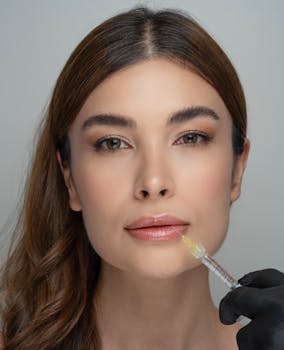If you’re researching cosmetic options and wondering how much are tummy tucks in pa, this guide breaks down typical price ranges, what drives costs, and the questions to ask before scheduling a consultation. A tummy tuck (abdominoplasty) is a major surgical procedure that removes excess skin and tightens abdominal muscles; prices vary across surgeons, facilities, and cities. Read on for realistic expectations, tips to compare quotes, and resources to learn the medical basics before you commit.
How much do tummy tucks cost in PA?
In Pennsylvania, a full abdominoplasty commonly ranges from about $6,000 to $15,000 or more depending on complexity and location. A mini tummy tuck is usually less expensive. The figure you’ll see quoted most often includes the surgeon’s fee, but true out-of-pocket cost can increase with anesthesia fees, operating room charges, pre-op testing, garments, and follow-up care. For background on the procedure itself, including variations and typical recovery, see this abdominoplasty (tummy tuck) overview.
Key factors that affect price
- Surgeon experience and board certification: Highly experienced, board-certified plastic surgeons typically charge more, reflecting expertise and track record.
- Procedure type: Full vs. mini tummy tuck, plus whether liposuction or muscle repair is included, changes the cost.
- Facility and anesthesia: Accredited surgical centers and hospital-based procedures carry higher facility and anesthesia fees.
- Geography and demand: Urban centers like Philadelphia often have higher averages, so search terms such as philadelphia tummy tuck cost frequently return top-end estimates.
- Pre- and post-op care: Lab work, compression garments, prescription meds, and follow-up visits add to the total.
How to compare quotes and avoid surprises
When you get multiple estimates, ask for an itemized breakdown that separates surgeon fees, facility charges, anesthesia, and aftercare. Verify whether the surgeon’s quote includes follow-up visits and revision policies. Check credentials and ask to see before-and-after photos of similar body types. If a price seems unusually low, it can be a red flag for inexperienced staff, non-accredited facilities, or hidden fees.
Is insurance an option?
Most cosmetic tummy tucks are considered elective and are not covered by insurance. Exceptions occur when the procedure is medically necessary—for example, to repair a hernia or to correct skin causing recurrent infections. Bring medical records and ask your insurer and surgeon’s office about documentation requirements if you plan to pursue coverage.
Financing, payment plans, and value considerations
Many clinics offer financing or payment plans through third-party lenders. While financing can make the procedure accessible, factor in interest costs. Consider value as more than the bottom-line price: safety, surgeon expertise, facility accreditation, and thorough pre-op planning reduce complication risk and may save money in the long run.
Preparing for and recovering from surgery
Good pre-op health, smoking cessation, and realistic expectations improve outcomes. Recovery often involves several weeks away from heavy exercise and work, plus wearing compression garments and attending follow-up visits. Ask your surgeon for a detailed recovery timeline and factor any lost wages and caregiver costs into your budget. For related tips on gentle skin care before and after procedures, consult this sustainable skincare practices guide to help maintain skin health pre- and post-op.
Questions to ask at your consultation
- Am I a good candidate for a mini vs. full tummy tuck?
- Can you show before-and-after images of patients with similar anatomy?
- What is the total estimated cost, and what’s included?
- What complications should I be prepared for, and how are they handled?
- What is your revision policy if I’m dissatisfied with the results?
Comparing surgeons by credentials and communication style is as important as comparing price. A confident, transparent surgeon who explains risks and recovery thoroughly is worth a higher fee for many patients.
- Takeaways:
- Tummy tuck prices in Pennsylvania typically range widely—plan for $6,000–$15,000+ depending on complexity.
- Ask for an itemized quote and verify what’s included (surgeon, facility, anesthesia, aftercare).
- Philadelphia tummy tuck cost tends to be higher than suburban or rural areas; factor travel if considering lower-cost options.
- Prioritize board certification, facility accreditation, and clear communication over the lowest price.
How long does recovery take after a tummy tuck?
Most patients need 2–4 weeks off light work and up to 6–8 weeks before resuming strenuous exercise. Full tissue healing continues for several months; follow your surgeon’s guidance to reduce complications.
Will insurance ever cover a tummy tuck?
Insurance rarely covers cosmetic abdominoplasty. Coverage may be possible if the surgery treats a documented medical problem such as a hernia or chronic skin infections; discuss documentation and pre-authorization with your insurer and surgeon.
How do I decide between cost and quality?
Balance price with surgeon experience, facility accreditation, and patient reviews. A slightly higher upfront cost for an experienced, board-certified surgeon in an accredited center often reduces long-term risk and additional expense from complications or revisions.






